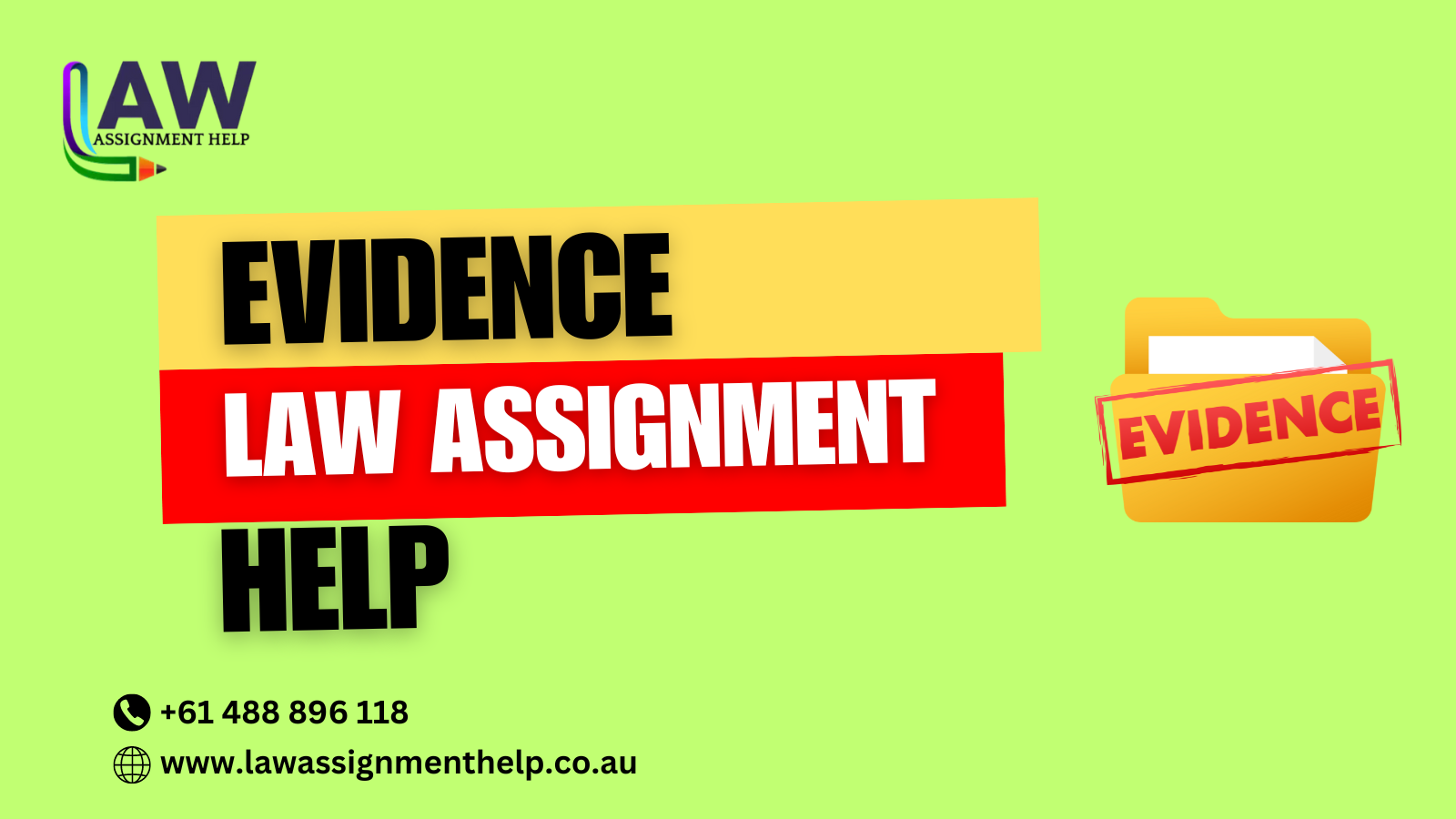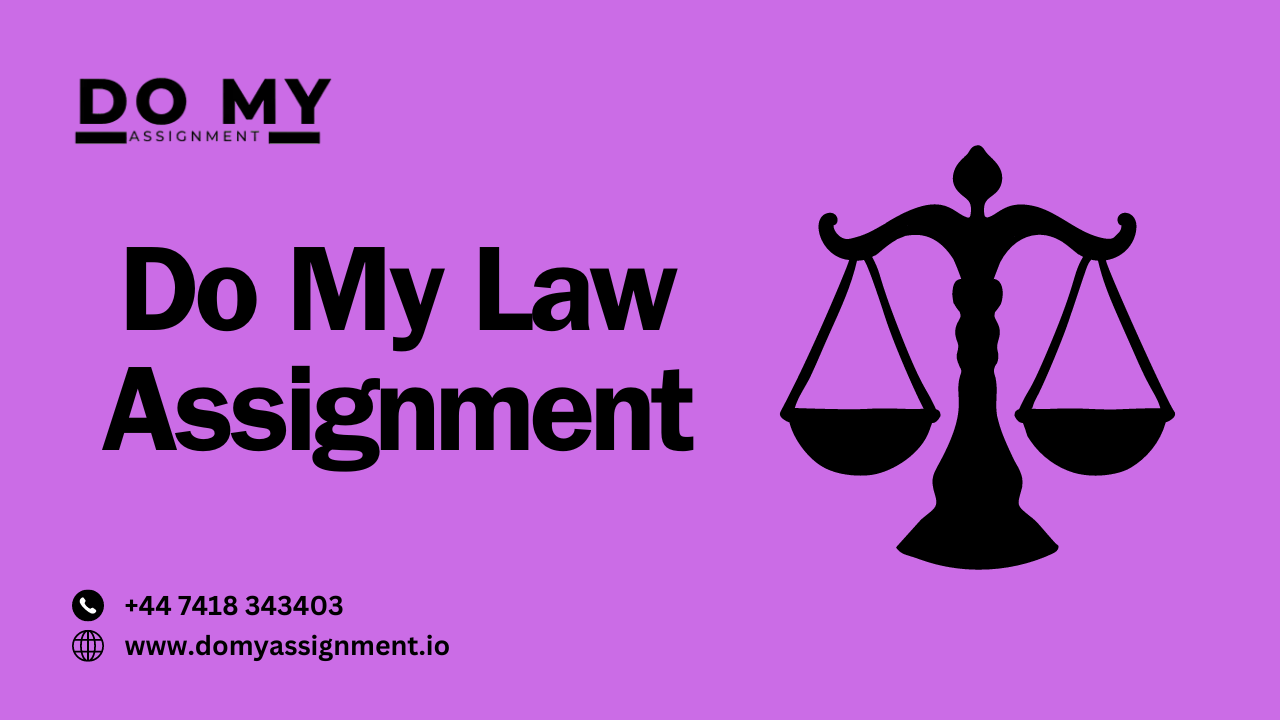
Are you feeling overwhelmed by your evidence law assignments? Don't worry; you're not alone. Understanding the intricacies of evidence law can be challenging, but with the right guidance, you can navigate through it smoothly. In this comprehensive guide, we'll break down the essential concepts of evidence law, and services like law assignment help, and provide you with the tools you need to excel in your assignments.
Understanding Evidence Law
Evidence law is like a puzzle; it's about piecing together facts to construct a coherent narrative. It encompasses the rules and principles that govern what can be presented in court to prove or disprove a fact. Think of it as the backbone of the legal system, ensuring fairness and justice in judicial proceedings.
Types of Evidence
Evidence comes in various forms, including testimonial evidence (witness statements), documentary evidence (written or recorded documents), physical evidence (tangible objects), and demonstrative evidence (illustrations or models). Each type serves a distinct purpose in building a case and must meet specific criteria to be admissible in court.
Rules of Admissibility
Not all evidence is created equal. The rules of admissibility dictate what evidence can be presented in court and under what conditions. Factors such as relevance, reliability, and fairness play a crucial role in determining admissibility, ensuring that only trustworthy evidence is considered during trial proceedings.
Burden of Proof
In legal proceedings, the burden of proof rests on the party making a claim. Whether it's the prosecution in a criminal case or the plaintiff in a civil case, they must present sufficient evidence to convince the court of the validity of their claim. The standard of proof varies depending on the type of case and the issues involved.
Presumptions and Inferences
Presumptions and inferences allow courts to make logical deductions based on certain facts or evidence presented. While presumptions are assumptions made in the absence of evidence, inferences are logical conclusions drawn from the evidence presented. Understanding how these concepts apply can significantly impact the outcome of a case.
Hearsay Rule
The hearsay rule is a fundamental principle in evidence law that prohibits the use of out-of-court statements as evidence to prove the truth of the matter asserted. However, there are exceptions to this rule, such as statements made under certain circumstances or statements that fall under a recognized hearsay exception.
Expert Testimony
Experts play a crucial role in providing specialized knowledge or opinions that aid the court in understanding complex issues. From forensic scientists to medical professionals, expert witnesses offer valuable insights that can sway the outcome of a case. However, their testimony must meet certain criteria to be admissible.
Authentication and Chain of Custody
Authentication ensures that evidence presented in court is genuine and reliable. It involves establishing the identity and integrity of the evidence through various means, such as witness testimony or forensic analysis. Similarly, maintaining a proper chain of custody is essential to preserve the integrity of evidence and prevent tampering or contamination.
Character Evidence
Character evidence refers to evidence relating to a person's character or reputation. While it's generally inadmissible to prove conduct in conformity with that character, there are exceptions, such as when a character is directly relevant to the case at hand. Understanding the nuances of character evidence is crucial in navigating evidentiary rules.
Best Evidence Rule
The best evidence rule stipulates that the original version of a document or recording should be presented as evidence whenever possible. This rule aims to prevent inaccuracies or alterations that may occur when relying on copies or secondary sources. Adhering to the best evidence rule ensures the integrity and reliability of evidence presented in court.
Privileges and Immunities
Privileges and immunities protect certain communications or relationships from being disclosed in court. From attorney-client privilege to spousal privilege, these legal protections uphold confidentiality and encourage open communication in specific contexts. Understanding these privileges is essential for preserving trust and confidentiality in legal proceedings.
Relevance and Materiality
Evidence must be both relevant and material to be admissible in court. Relevance refers to the logical connection between the evidence and the issues in dispute, while materiality pertains to the evidence's significance in proving or disproving those issues. Ensuring that evidence meets these criteria is essential for building a compelling case.
Exclusionary Rule
The exclusionary rule prohibits the use of evidence obtained through illegal means or in violation of constitutional rights. It serves as a deterrent to unlawful police conduct and protects individuals from unjust prosecution. Understanding the scope and application of the exclusionary rule is crucial for upholding constitutional rights in criminal proceedings.
Law Assignment Help Services
If you're struggling with your evidence law assignments, don't hesitate to seek help. Assignment help for students like services offers expert assistance and guidance to students facing academic challenges. From clarifying concepts to providing tailored solutions, these services can be invaluable in mastering evidence law and achieving academic success.
Conclusion
Navigating evidence law assignments can be daunting, but with a solid understanding of the fundamental principles and concepts, you can tackle them with confidence. Remember to approach each assignment systematically, applying the rules of evidence to analyze and interpret the facts presented. By mastering evidence law, you'll not only excel academically but also develop invaluable analytical and critical thinking skills essential for success in the legal profession.
Frequently Asked Questions
1. What is the role of evidence in the legal system?
Evidence serves as the foundation of the legal system, providing the factual basis upon which decisions are made in court. It helps parties prove or disprove claims, ensuring fair and just outcomes in judicial proceedings.
2. How do I determine if evidence is admissible in court?
Evidence must meet certain criteria, including relevance, reliability, and fairness, to be admissible in court. Understanding the rules of admissibility and the specific requirements for each type of evidence is essential in determining its admissibility.
3. Can I use hearsay evidence in court?
The hearsay rule generally prohibits the use of out-of-court statements as evidence to prove the truth of the matter asserted. However, there are exceptions to this rule, so it's essential to consult with legal experts to determine the admissibility of hearsay evidence in specific cases.
4. How can expert testimony benefit my case?
Expert testimony provides specialized knowledge or opinions that can help clarify complex issues and sway the court's decision. By presenting expert testimony, parties can strengthen their arguments and provide additional insight into the relevant facts and issues.
5. What should I do if I need help with my evidence law assignments?
If you're struggling with evidence law assignments, consider seeking assistance from assignment help services. These services offer expert guidance and support to students, helping them understand complex concepts and excel academically.

.png)

.png)



.png)



.png)





Write a comment ...